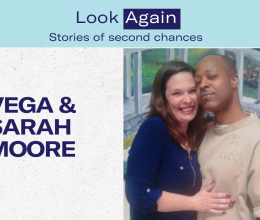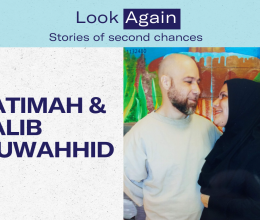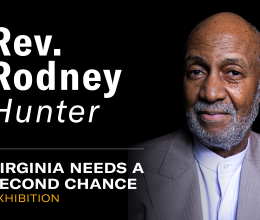Ray Morrogh's Response:
1. We believe making a specific % commitment to decarceration is also a pledge to constituents that you are willing to be held accountable for doing your part to end mass incarceration. Recently, John Cruezot of Texas set a goal of decarcerating Dallas County by 15-20% in his first term. His plan to do that will be available within the first 90 days of taking office. Will you commit to a specific % reduction in the incarcerated population of Arlington County during the term of office for which you are now seeking election? If so, please indicate what % you think is achievable and why.
Yes.
I am proud to say that my office has been at the forefront of innovative criminal justice reforms that have already reduced the jail and juvenile detention populations in Fairfax County to the lowest levels in decades, even as the county's population has grown exponentially since that time. Programs such as Diversion First, Drug Court, the Veteran's Treatment Docket, and Mental Health Court have seen great results diverting those individuals committing non-violent crimes from the criminal justice system and helping those who struggle with drug addiction and mental illness, providing them the services they need and keeping them out of jail, where they do not belong. My office also does not ask for cash bond, thus ensuring that individuals committing minor, non-violent crimes are not stuck in jail because they do not have the financial resources to make a restrictive cash bond. Moving forward, my office will continue to study the relevant data to stay ahead of the curve on criminal justice reform. Under my leadership, Fairfax County has become the safest county in the nation for a jurisdiction of its size while also maintaining its lowest level jail population in decades.
2. Will you create and release a written plan detailing how you plan to reduce the jail population in Fairfax County within your first 100 days in office?
Yes.
I think the results highlighted in my answer to question 1 speak for themselves and I am more than happy to detail the efforts my office continues to undertake in a written plan, detailing not only our successes in reducing the jail and juvenile detention center populations, but also affirming our continued dedication to such goals.
3. Do you commit to collect and publicly sharing data from the Fairfax County Commonwealth’s Attorney Office on quarterly basis, including, at minimum, data that can be sorted demographically on 1) cases dismissed, nolle prossed or declined; 2) charges brought; 3) bail recommendations made and accepted; 4) plea offers and agreements; 5) convictions and not guilty verdicts; 6) prosecutor demands for jury trial; and 7) sentencing recommendations?
I will certainly commit to collecting and sharing all data from the Commonwealth Attorney's Office with the public. I think that it is important for the public to be informed of the work that my office does. The issues with data collection and sharing come down to resources provided to this office. Since taking office in 2007, I have consistently lobbied the County for additional resources in order to better serve the residents of Fairfax County. Understandably, given the County's vast responsibilities and limited resources to spread to all of its agencies, those requests have been met with mixed results. Hopefully, with your help, we can lobby the County for the funding for personnel who can collect, sort and disseminate that data to the residents of Fairfax County.
4. Will you commit that your office will adopt and publish a non-cooperation policy with ICE in Fairfax County?
My office does not interact with ICE. We have never attempted to alert ICE about the status of any defendant or witness. I commit to maintaining that policy. Many times, it is not only the defendants who have immigration concerns when they come to court, but witnesses as well. My office many times takes into consideration a defendant's immigration status when offering a resolution in a case, many times reducing the charge or the recommended sentence when appropriate in order to ensure that a defendant's immigration status is unaffected by the outcome of a criminal case. I commit to maintaining that policy as well. Finally, my office cooperates with immigration attorneys in order to help victims of crimes and witnesses in obtaining U Visas so that they may remain in this country without fear of interacting with law enforcement or the criminal justice system.
Steve Descano's Response:
1. We believe making a specific % commitment to decarceration is also a pledge to constituents that you are willing to be held accountable for doing your part to end mass incarceration. Recently, John Cruezot of Texas set a goal of decarcerating Dallas County by 15-20% in his first term. His plan to do that will be available within the first 90 days of taking office. Will you commit to a specific % reduction in the incarcerated population of Arlington County during the term of office for which you are now seeking election? If so, please indicate what % you think is achievable and why.
Yes, minimum of 5%.
I will commit to enacting policies that result in decarceration. My commitment to real criminal justice reform and to being held accountable is why I wrote my plan for reform, “Progressive Justice.” I would expect to be held accountable at the end of my first term based on how well I implemented my plan. Progressive Justice lays out my plans to end cash bail, stop overcharging felonies, divert drug users, raise the felony larceny threshold, and a whole other host of reforms that will decarcerate Fairfax County. Projecting the effect of these types of policies with reliable data is the surest way to create a decarceration percentage benchmark that is meaningful. Without proper access to this data, should it exist, creating a meaningful benchmark is difficult without unfairly exaggerating or overestimating the impact of specific policies. Unfortunately, the current Commonwealth’s Attorney refuses to release data and fights any attempt to make the office more transparent. Therefore, the only reform whose impact I can estimate with any degree of confidence is the effect of my plan to no longer ask for cash bail. Based on the average daily population of the county jail, the number of people who are being held pretrial, and somewhat-dated state data on the state’s pretrial population, I estimate that eliminating cash bail will have an approximately 5% reduction in the county’s jail population. I do believe that the percentage of decarceration will be larger based on the polices specified in Progressive Justice. For example, the latest county arrest figures indicate that county police made over 7,100 drug arrests 1 during the year. My plan to divert those with substance abuse issues and decline to prosecute those arrested for marijuana possession should result in a further decrease in the jail population. The same is true of my plan to expand our county’s Veterans Treatment Docket. With almost 72,000 veterans in the office’s jurisdiction, expanding this program and doing so with a focus on pre-plea diversions would suggest further decarceration of our county’s jail population. Progressive Justice’s other policies should have similar results.
2. Will you create and release a written plan detailing how you plan to reduce the jail population in Fairfax County within the first 100 days of the term for which you are seeking election?
Yes.
I have already written and released a 20-page plan detailing how I will reform the criminal justice system so that our neighbors are not over criminalized and over incarcerated. Once I get into office and have access to more data, I will be able to use the data to update “Progressive Justice” and make it more data driven.
3. Do you commit to collect and share publicly data from the Fairfax County Commonwealth’s Attorney Office on a quarterly basis, including, at minimum, data that can be sorted demographically on 1) cases dismissed, nolle prossed or declined; 2) charges brought; 3) bail recommendations made and accepted; 4) plea offers and agreements; 5) convictions and not guilty verdicts; 6) prosecutor demands for jury trial; and 7) sentencing recommendations?
Yes.
A Commonwealth’s Attorney’s office needs data based on every step of its office’s cases to find and root out systemic disparities. This data needs to be sortable demographically to be effective for this purpose. Because finding and rooting out systemic disparities and discrimination is a major driver for me, I am committed to collecting this data. As I noted in Progressive Justice, I will invite outside organizations to help me collect and analyze the data specified in this question. I also have committed to releasing the data to the public. Publicly releasing this data and my office’s plans to address systemic disparities borne out by the data builds trust between the office and the community. Rebuilding trust between our justice system and our communities is imperative in Fairfax County. I also personally want to be judged on the progress my office has made in ending systemic discrimination and systemic disparities.
4. Will you commit that your office will adopt and publish a policy of non-cooperation with ICE?
Yes.
I am the only candidate in this race for Commonwealth’s Attorney that signed the Fairfax For All Pledge. This pledge calls on the County’s Board of Supervisors to pass an ordinance that ends all voluntary collaboration with ICE. I have committed to helping the Fairfax For All Coalition craft the text of the ordinance to limit legal challenges to the ordinance. Furthermore, as noted in Progressive Justice, regardless of the actions of the Board of Supervisors, my office will not cooperate with ICE, nor will it notify or alert immigration officials or agencies regarding witnesses, victims, or defendants with whom the office comes into contact.







